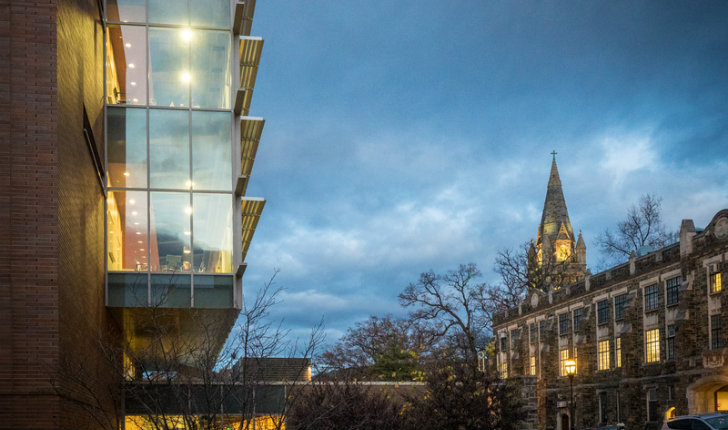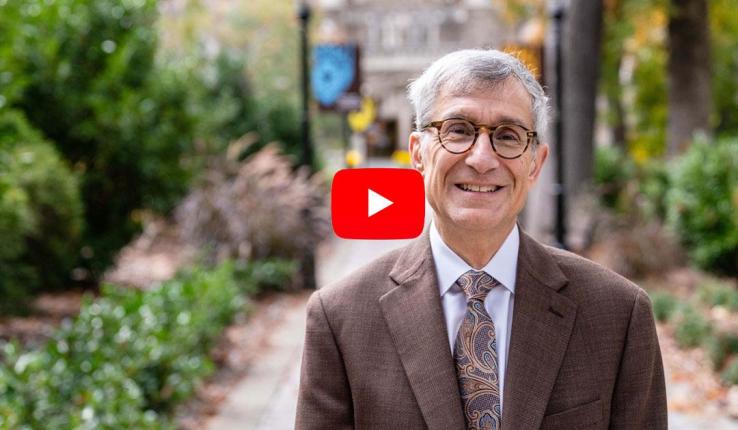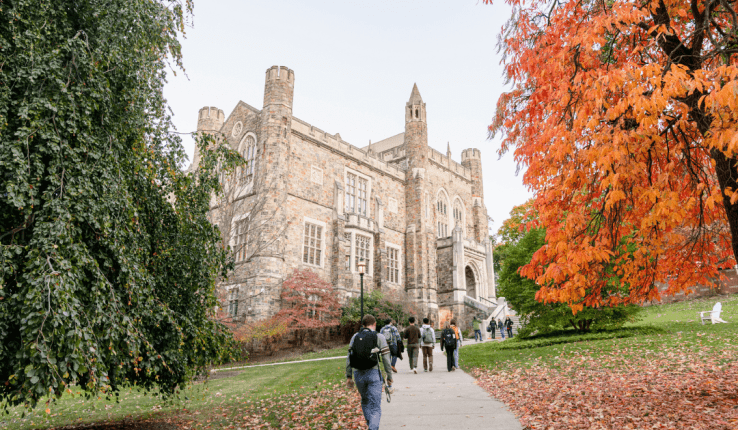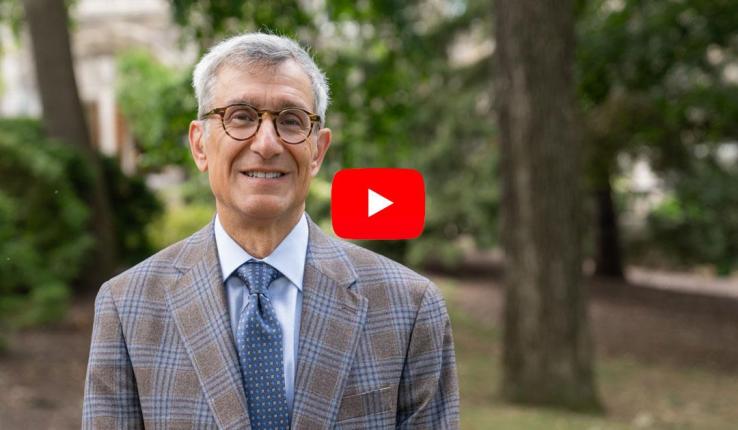Lehigh is joining a three-year institutional change effort to develop inclusive faculty recruitment, hiring and retention practices. The Association of Public and Land-grant Universities (APLU) co-leads the effort, known as Aspire: The National Alliance for Inclusive & Diverse STEM Faculty, along with the Integration of Research, Teaching, and Learning (CIRTL). Lehigh is one of 19 universities to join the new cohort.
Aimed at ensuring all STEM faculty use inclusive teaching practices and that institutions increase the diversity of their STEM professoriate, participating universities begin their work with aself-assessment of current practices and assets. The institutions will then develop and implement campus action plans to drive change and scale such efforts across all their STEM programs.
“Joining the Aspire IChange Network is a great opportunity to learn from and work with colleagues as we strengthen our efforts to make Lehigh's academic enterprise more inclusive and welcoming," said Nathan Urban, Provost and senior vice president for academic affairs. "While this particular initiative is focused on STEM faculty, it will have a positive impact on faculty across the university and on our ongoing work to create and sustain systems and structures that support a diverse and inclusive community and intellectual environment."
The Aspire Alliance, which APLU and the University of Wisconsin-Madison facilitate with the involvement of several universities, is engaging the new cohort of universities through its Institutional Change (IChange) Network. The network provides universities with comprehensive support and resources for institutional change, including access to national partners in a concierge-style approach to technical assistance.
"We are pleased to join our esteemed colleagues as part of the Aspire IChange Network," said Donald Outing, vice president for equity and community. "The Network's resources and support will be a great complement to the work that Lehigh has already begun in examining our institution's academic environment with a commitment to making the systemic changes needed to ensure that it is not only inclusive but fully empowering of all people."
In 2016, Lehigh established the ADVANCE Center for Women STEM Faculty, an outgrowth of work supported by a National Science Foundation (NSF) ADVANCE Institutional Transformation Award first granted to the university in 2010. The Center, led by Director Marci Levine and Faculty Director Kristen Jellison, continues to build on that work to improve recruitment, retention, career satisfaction and leadership development of early- to mid-career women faculty in STEM and to promote a more equitable work environment for women STEM faculty beyond Lehigh. Focus areas include: developing and implementing best practices for hiring and promotion, providing training on topics such as how faculty can become effective bias bystanders, supporting faculty on continuing education to bring inclusive and culturally relevant pedagogy to the curriculum and their classrooms, as well as ongoing mentoring for faculty and students.
Lehigh is among those institutions leading conversations around transforming how faculty service is constructed and valued, an important topic given the research that shows women and underrepresented minorities conduct a disproportionate amount of service in the academy without credit or reward. Among other efforts, Lehigh hosted a 2018 Faculty Service/Engagement Summit and is working toward implementing solutions that were explored during the national conference.
“I anticipate that anything we learn and adopt to increase diversity among our STEM faculty will have a broader, positive impact on the university as a whole with regard to recruitment and retention of faculty from under-represented groups,” said Jackie Krasas, a faculty member in Lehigh’s Department of Sociology and Anthropology and deputy provost for faculty affairs. “Likewise, accessing the expertise in the network on inclusive STEM pedagogies builds upon and broadens existing efforts through our Center for Innovation in Teaching and Learning.”
“We face a critical shortfall of diversity in STEM fields nationally,” said Travis York, APLU’s assistant vice president, academic and student affairs, who is also co-leader of the IChange Network. “The institutions participating in the IChange Network are moving beyond statements into actions as they seek to enact inclusive organizational structures to increase diversity of their faculty and value the use of equity-minded practices by all faculty as we work to address a national challenge.”
“We are excited to have these 19 impressive universities expand the IChange Network and bring their deep commitment to transforming STEM education,” said Tonya Peeples, associate dean for equity and inclusion of the Penn State College of Engineering and co-leader of the Alliance’s IChange Network. “Learning from and alongside our exceptional first and second cohorts, this new cohort expands our potential to identify and share the most promising innovative practices towards diversifying the STEM professoriate and ensure their teaching, advising and mentoring is inclusive. With new types of institutions joining the network, we’ll be learning together how to create and sustain lasting change for diversity, equity, and inclusion in STEM across the higher education ecosystem. All of this will help ensure the success of underrepresented groups in STEM fields.”
The other institutions in the new cohort are: Appalachian State University; California Polytechnic State University; Grand Valley State University; Jackson State University; Louisiana Tech University; Mississippi State University; Pennsylvania State University; Stevens Institute of Technology; Temple University; The Ohio State University; University of California, Santa Barbara; University of Denver; University of Louisiana at Lafayette; University of Maryland, College Park; University of Minnesota, Twin Cities; University of Pittsburgh; Utah State University; and Virginia Tech.
Despite the centrality of diversity in learning and student success, efforts to increase underrepresented faculty have not been as successful as intended, particularly in STEM. A 2019 NSF analysis revealed that underrepresented minority faculty occupied a mere 9% of professorships in STEM fields at four-year institutions. Other research shows when underrepresented students are taught by diverse faculty members they achieve at significantly higher rates; as much as 20% to 50% of the course achievement gaps between minority and majority students are eliminated.
The new cohort joinstwoearlier cohorts that are currently working together to advance this work, bringing the total number of institutions participating in the institutional change effort to 54. The National Science Foundation funds the effort as part of its INCLUDES initiative.





